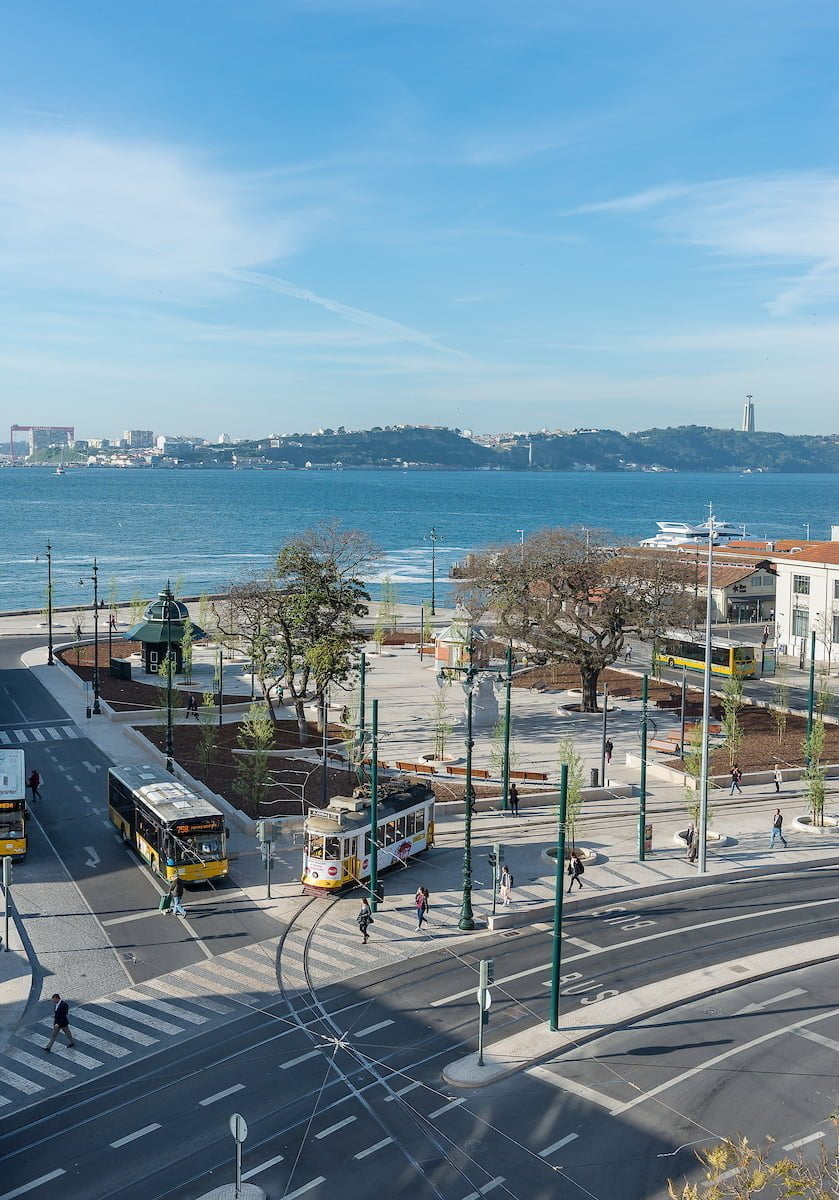Post-Lockdown Mobility webinar report: Urban logistics in lockdown
The session was hosted by Giacomo Lozzi, Senior Project Manager and Urban Freight Coordinator at POLIS. Giacomo began by highlighting an updated document from POLIS showcasing current EU funding opportunities for POLIS members. These funds present an opportunity for cities and regions to join ongoing EU projects on mobility. More information is available on the POLIS Members Area. Giacomo also announced the launch of Tailored Technical Meetings, a new service from POLIS offering interactive and technical discussions with small groups of members on responses to COVID-19. These sessions will provide more focused, technical discussion on implementing specific measures in response to COVID-19, such as guidance on introducing emergency bike lanes or public transport safety procedures. The first of these meetings took place on Wednesday 20th May. To find out more or discuss your interest in a Technical Tailored Meeting, please contact Karen Vancluysen.
Dr. Laetitia Dablanc, University Gustave Eiffel and The Logistics City Chair
Laetitia discussed the Barometer of Urban Logistics (BUL), a project coordinated by the Logistics City Chair in Paris. The BUL saw businesses and logistics firms in Paris surveyed on a daily basis throughout lockdown to gauge the various impacts on logistics operations, including access, recruitment, traffic levels, preparation for post-lockdown and other issues. Trade organisations were also surveyed once a week.
The BUL revealed some interesting results. Deliveries fell by as much as 50% during lockdown, and whilst this did rise as lockdown went on, deliveries have still not hit pre-lockdown levels. Demand decreased mainly because there were fewer people in Paris during lockdown (e.g. residents moving to holiday houses, tourists). E-commerce and food deliveries have increased whilst non-food shops and deliveries for restaurants, hotels and cafes have all decreased substantially. The BUL also revealed problems faced by businesses and logistics operators, such as a lack of staff (e.g. contractors, gig workers), increased time taken for deliveries due to closure of pick-up points (e.g. post offices), and higher delivery expectations per day (due to decreased congestion). New markets have appeared in logistics, with home deliveries increasing by around 300% in some cases. Logistics companies also noted that they have been involved in solidarity initiatives, such as delivering meals to hospitals.
Laetitia noted that the BUL also attempted to assess how logistics firms and businesses were trying to prepare for post-lockdown. Many companies are finding it very difficult to predict when normal patterns of operation will occur, making it hard to make long-term plans. Many businesses are expecting increases in activity, but that this may take some time to materialise. Many are also expecting problems with recruitment, and increased costs and complexities due to having to comply with new sanitary requirements.
 It was noted that ‘instant delivery’ services (e.g. take-away food deliveries) experienced benefits from the lockdown, with Laetitia highlighting that a recent upturn in Uber’s turnover has come largely thanks to strong performances in the UberEats service. However, meal deliveries in France are still down 30-40% compared to pre-lockdown conditions, showing that even this sector is struggling. In the wider Business to Consumer (B2C) delivery market, it was noted that around 75% of B2C delivery companies reported a drop in activity. However, certain streams are performing better than normal, with non-food e-commerce up by 10-20% and food commerce up by 30-40%. Laetitia noted that food deliveries appear to be performing better in other European countries such as the UK and Germany.
It was noted that ‘instant delivery’ services (e.g. take-away food deliveries) experienced benefits from the lockdown, with Laetitia highlighting that a recent upturn in Uber’s turnover has come largely thanks to strong performances in the UberEats service. However, meal deliveries in France are still down 30-40% compared to pre-lockdown conditions, showing that even this sector is struggling. In the wider Business to Consumer (B2C) delivery market, it was noted that around 75% of B2C delivery companies reported a drop in activity. However, certain streams are performing better than normal, with non-food e-commerce up by 10-20% and food commerce up by 30-40%. Laetitia noted that food deliveries appear to be performing better in other European countries such as the UK and Germany.
Laetitia concluded by considering what comes next for urban logistics in light of these changing patterns of activity. There have been positive messages coming from the national government in France about using this crisis as a chance to decarbonise transport and rethink logistics. However, Laetitia stated that going forward, purchasing behaviour will be changed permanently, which could have major ramifications for how urban logistics operate. With more people moving online and falling in-person purchases, more deliveries and therefore more delivery trips into the city will be required -- unless we think about how we do urban logistics, and what solutions may be possible to stop this happening. The risk of stalling the implementation of Low Emission Zones (LEZs) was noted, and the impact this may have for air quality in cities. Laetitia also pointed out that with an increasing interest in many cities in reallocating road space for cycling, careful consideration needs to be given to ensure that deliveries are accounted for in these plans.
Martine Vazquez from the City of Paris and Chair of Polis Urban Freight Working Group
Martine began by setting out the immediate impacts on the urban logistics sector in Paris resulting from COVID-19. Unsurprisingly, many logistics firms - and indeed local businesses - have endured challenging economic conditions during and after lockdown. Martine noted there have been very few commercial electric vehicle (EV) registrations during this period, stalling long-term progress on reducing the use of ICE vehicles in Paris. Martine echoed Laetitia’s comments on e-commerce, stating that food and pharmacy deliveries have increased significantly during this period. There has also been an increase in demand for contactless delivery services, with people keen to avoid the spread of the virus through deliveries. Martine also explained how marked improvements in air quality were seen during lockdown, with NO2 and CO2 levels down by as much as 30%, as well as notable reductions in Particulate Matter (PM).
Martine identified several key lessons for the future of urban logistics in Paris. Several risks have arisen, including the slowdown of the EV market for businesses in Paris, the growing dominance of a few online firms, and the impact of increasing e-commerce for local shops. However, several opportunities have arisen from this situation, including a chance for local businesses to strengthen their digital platforms, the potential to use new technologies for logistics (e.g. automated vehicles, contactless deliveries), new collaborations, as well as new innovations such as delivery lockers in public spaces.
Looking ahead to the situation for logistics in the post-lockdown phase, Martine highlighted how efforts to create more space for walking and cycling are being treated carefully in the context of deliveries. Paris has gained international attention for its recent efforts to make walking and cycling easier post-lockdown. Efforts are being made to ensure that this does not negatively disrupt logistics and that businesses continue to receive goods in a reliable and predictable manner. A map of all the planned changes for walking and cycling, such as new cycle lanes, pedestrian zones or street closures, is publicly available. Delivery vehicles will be permitted to enter pedestrian areas, whilst new guidelines have been issued to ensure that deliveries are considered when closing streets to traffic or implementing new cycle lanes.
Martine listed a series of actions that are being taken in Paris to support logistics during this challenging period. In the short-term, efforts are being made to have a good dialogue with logistics firms about the new walking and cycling infrastructure in Paris, including a reminder of safety rules to protect people travelling on foot or by bike in built-up areas. A shared electric- vehicle service for commercial operators is being rolled out to facilitate zero-emission deliveries for businesses in Paris. This scheme was already in operation, but is now being sped up in light of recent events. A toolkit for businesses has also been issued to assist with ensuring social distancing outside and around shops. New logistics models are being explored, such as ‘microhubs’ in built-up areas, which allow localised deliveries by cargo bike or electric vehicles. Challenges exist in setting up these ‘microhubs’, but solutions are being found, for example by using vacant space normally filled by tourist buses. In the medium- to long-term, new measures are being explored to create more efficient and sustainable logistics in Paris. Off-peak and night deliveries are already being trialled in certain arrondissements, with an aim to speed up these trials in the near future. River transport for freight is also being investigated, as well as ‘tactical logistics’ solutions, such as delivery lockers in public spaces.
vehicle service for commercial operators is being rolled out to facilitate zero-emission deliveries for businesses in Paris. This scheme was already in operation, but is now being sped up in light of recent events. A toolkit for businesses has also been issued to assist with ensuring social distancing outside and around shops. New logistics models are being explored, such as ‘microhubs’ in built-up areas, which allow localised deliveries by cargo bike or electric vehicles. Challenges exist in setting up these ‘microhubs’, but solutions are being found, for example by using vacant space normally filled by tourist buses. In the medium- to long-term, new measures are being explored to create more efficient and sustainable logistics in Paris. Off-peak and night deliveries are already being trialled in certain arrondissements, with an aim to speed up these trials in the near future. River transport for freight is also being investigated, as well as ‘tactical logistics’ solutions, such as delivery lockers in public spaces.
João Raul Farinha, Innovation Advisor, from the City of Lisbon
With Portugal having gone into lockdown on 22 March, local businesses in Lisbon have endured a challenging period. As in many other European countries many shops have been shut, and restaurants and cafes have been restricted to take-aways. João noted large impacts on consumer behaviour, in particular a significant increase in the use of supermarkets rather than local services. The City of Lisbon was concerned about the impact on local businesses, and noted that there was a lack of information about which shops (i.e. restaurants/cafes/local food shops) remained open and were still offering services. Many local businesses in Lisbon do not have an online presence, leading to concerns about their ability to adapt to the current conditions. Additionally, information about opening hours commonly found online (e.g. through Google) were unreliable and not reflective of the current restrictions in place.
To assist businesses during this challenging time, the City of Lisbon therefore decided to launch a platform to showcase local businesses offering their services to customers. The ‘Estamos Abertos’ (‘We Are Open’) initiative highlights businesses across the city who remain open to customers through an interactive map. Almost 2000 businesses are on the map, with eighteen categories of businesses . Information has been gained by partnering with local boroughs and business associations, which have assisted in accessing information about the services on offer from each business. This was accompanied by a small task force within the City of Lisbon who have worked hard to contact businesses to feature them on the map. This data has been shared with local companies and operators, leading to other similar platforms being set up in the city.
As well as making businesses visible online, the City of Lisbon has worked to connect local businesses with transport and logistics operators in Lisbon. Ride-hailing and taxi companies have been going through a challenging period and thus have been in need of diversified sources of income. By connecting these companies with local businesses new partnerships have been created, with some ride-hailing and taxi companies starting to carry out food deliveries.
 João closed by reflecting on some key lessons for urban logistics learned throughout this process. Firstly, municipalities can play an active role in advancing digitalisation of local businesses to help them adapt to new conditions. João also stressed the value of having an up-to-date local business census with accurate data to inform decision-making. João reflected on the success of the Estamos Abertos initiative, and highlighted that no special or complex service was needed, merely a platform to showcase businesses and connect stakeholders. Having open data on the platform was beneficial, with private and public actors collaborating to the benefit of local businesses. João stressed that going forward a ‘sharing resources’ culture is needed, and that the value of such initiatives has been shown in this crisis with the case of taxi services diversifying to support food deliveries.
João closed by reflecting on some key lessons for urban logistics learned throughout this process. Firstly, municipalities can play an active role in advancing digitalisation of local businesses to help them adapt to new conditions. João also stressed the value of having an up-to-date local business census with accurate data to inform decision-making. João reflected on the success of the Estamos Abertos initiative, and highlighted that no special or complex service was needed, merely a platform to showcase businesses and connect stakeholders. Having open data on the platform was beneficial, with private and public actors collaborating to the benefit of local businesses. João stressed that going forward a ‘sharing resources’ culture is needed, and that the value of such initiatives has been shown in this crisis with the case of taxi services diversifying to support food deliveries.
Members can access the recording of the webinar and all the presentations through the Members Area of the POLIS website. Information about upcoming Post-Lockdown Mobility webinars can be found on our website here.



